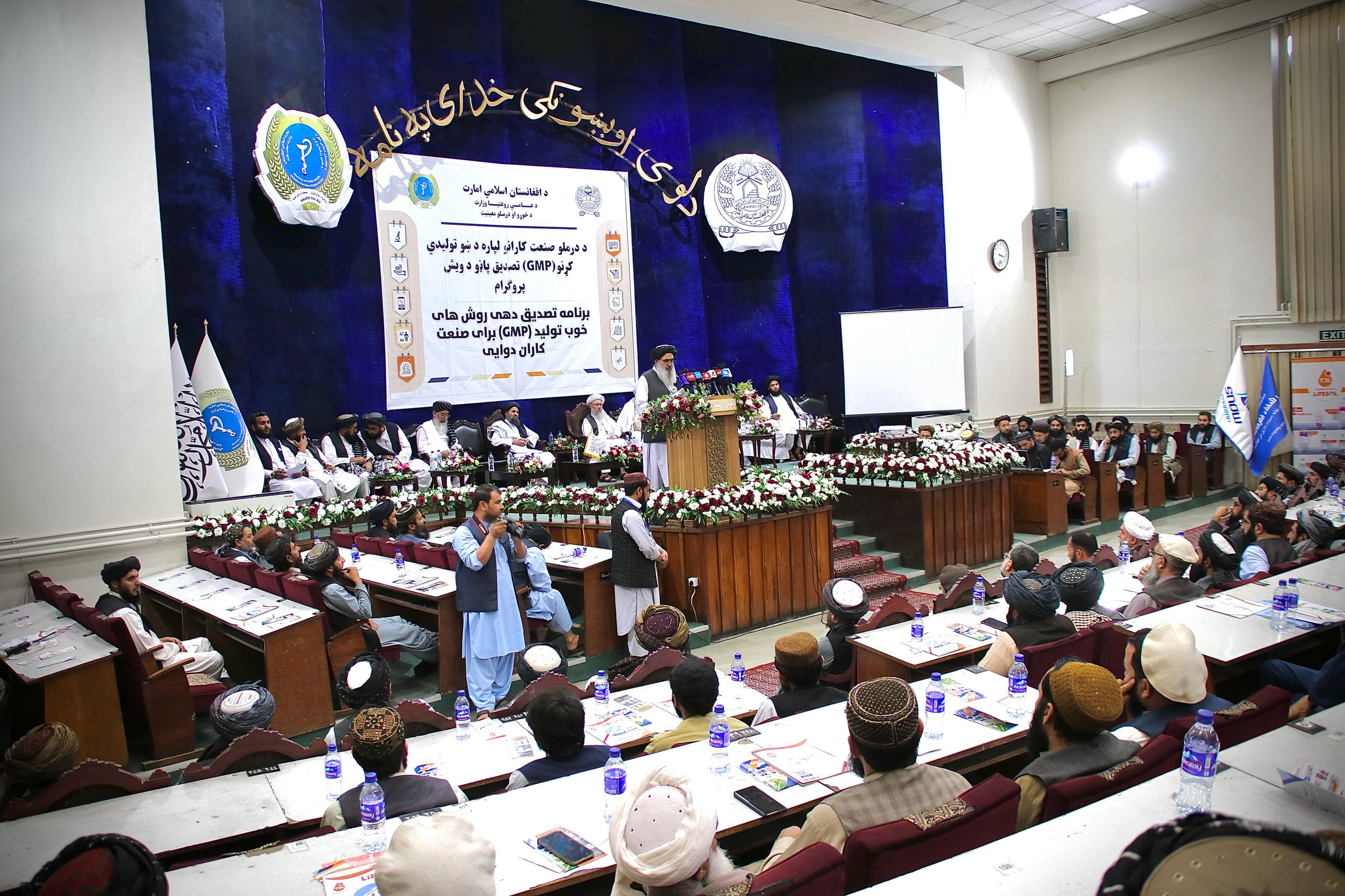Afghanistan Takes Major Step Toward Pharmaceutical Independence with GMP Certification for Local Manufacturers

In a move aimed at raising the bar for domestic pharmaceutical standards, the Ministry of Public Health of the Islamic Emirate of Afghanistan (IEA) rolled out a certification ceremony to hand over Good Manufacturing Practice (GMP) certificates to national pharmaceutical manufacturers — a milestone poised to reshape the local health industry.
The high-profile gathering brought together a host of senior figures, including the Deputy Prime Minister for Economic Affairs, Alhaj Mullah Abdul Ghani Baradar; the Deputy Prime Minister for Administrative Affairs, Alhaj Mawlawi Abdul Salam Hanafi; cabinet members; Minister of Public Health, Mawlawi Noor Jalal Jalali; deputy ministers; central and provincial directors; along with key stakeholders from private pharmaceutical firms and media circles — underlining the strategic significance of the initiative.
Speaking at the event, H.E. Deputy Prime Minister Baradar hailed the commendable practices of domestic producers, urging them to adhere to both national and global benchmarks in pharmaceutical manufacturing. He further called upon local and foreign investors to channel funds into the health sector and step up to the plate in supporting Afghanistan’s broader economic revival.
Echoing these sentiments, Deputy PM Hanafi came down hard on the importation of substandard drugs and consumables, stating that any entity found to be flooding the market with low-quality goods—whether produced domestically or brought in from abroad—would be held to account under the law.
Minister of Public Health, Mawlawi Noor Jalal Jalali, touted the certification as a game-changing development, describing it as a beacon of hope for the domestic pharmaceutical sector. He emphasized that such advancements would bolster local output, reinforce the national economy, and pave the way toward a self-sufficient healthcare system.
Meanwhile, Deputy Minister for Food and Drugs, Mawlawi Hamdullah Zahid, credited the successful implementation of GMP standards to the Islamic Emirate’s robust policy framework, stressing that the administration remains fully committed to scaling up domestic production and fortifying this sector to ensure long-term sustainability.
Given that three companies—Snow Pharma, Milli Shifa, and TJL—had successfully lived up to GMP criteria in the manufacturing of medicines and injectable solutions, they were deemed eligible for certification — a clear indication of Afghanistan’s potential to compete on the global stage in pharmaceuticals.
As a formal recognition of their achievement, GMP certificates were conferred upon these firms by senior officials from the Prime Minister’s Office and the Ministry of Public Health, marking a critical step in driving forward the country’s vision of pharmaceutical independence.
